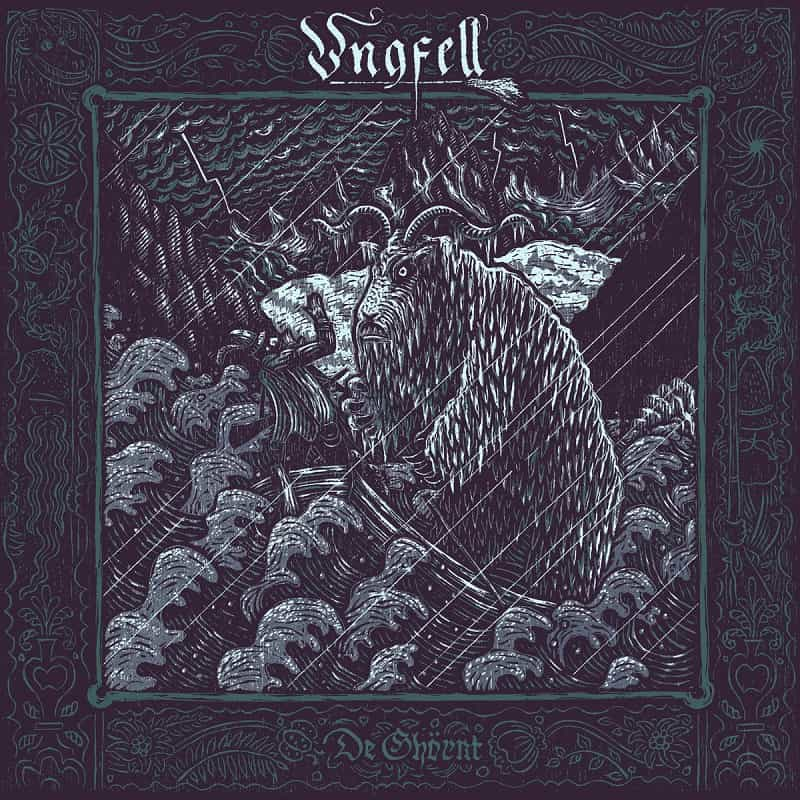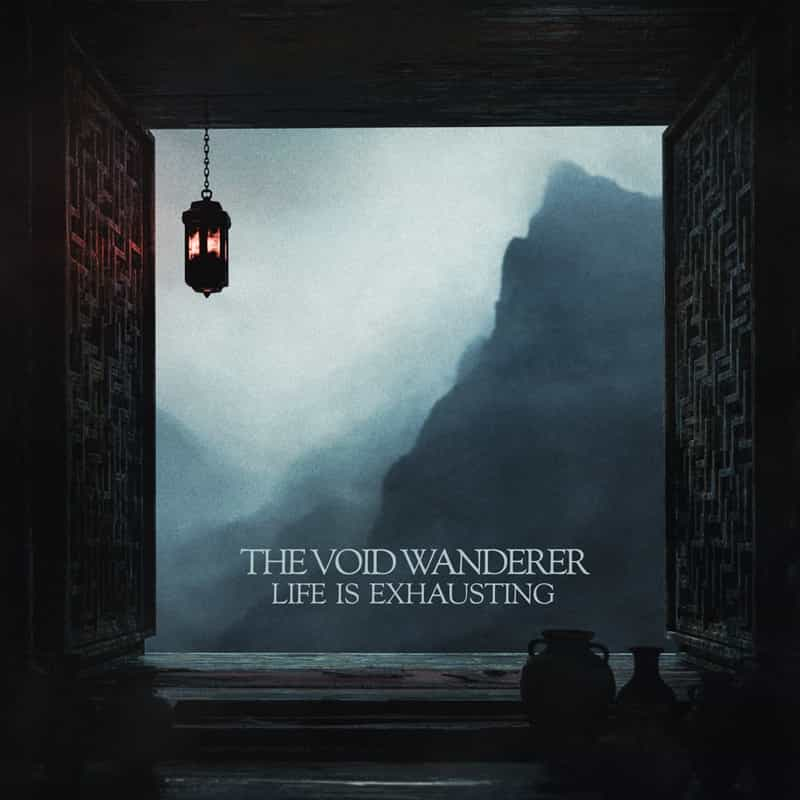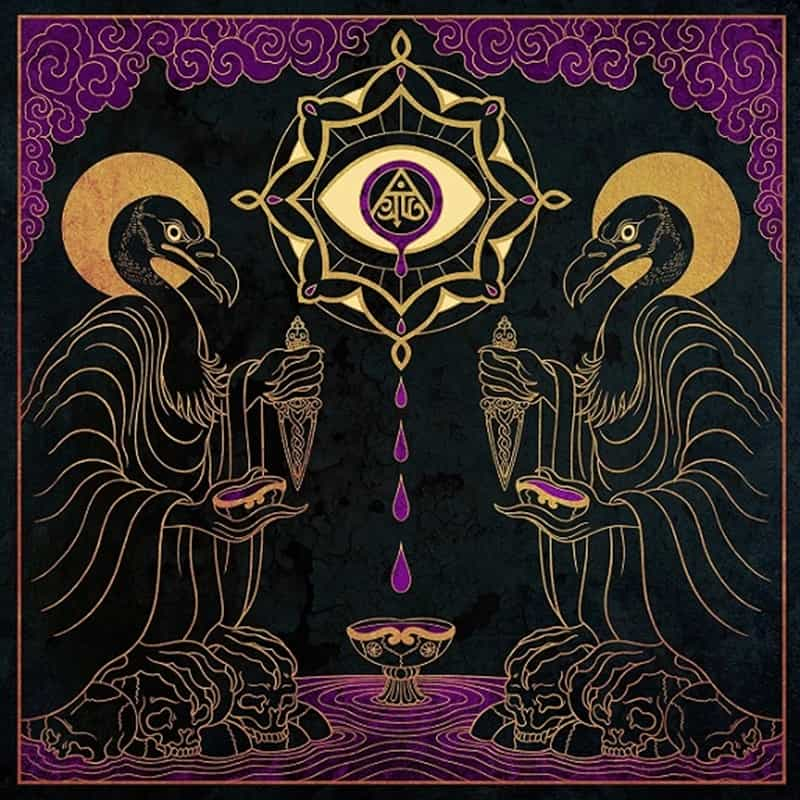Ungfell – De Ghörnt

Band: Ungfell
Album: De Ghörnt
Label: Eisenwald
Release date: November 29th, 2024
Country: Switzerland
Format reviewed: High-quality digital recording.
The Alpine cold and the howls of the beasts that roam them is what comes to mind when listening to Ungfell’s latest full-length album. Ever since their beginnings, the Swiss black metal alchemists have managed to create a sound of their own, that no other band has managed to reproduce. Their take on medieval themes leaves aside the glorified battles and castles, in order to provide a darker, wilder, and even more sinister take. If you will, picture that moment in Goethe’s “Faust”, when the protagonist, accompanied by Mefisto, witnesses the Walpurgisnacht rituals for the first time, and you can more or less get the idea of the atmosphere of Ungfell’s music. Along with keeping their style consistent, the band doesn’t shy away from offering setting changes to the stories behind their records, and thus, by extension, to their music. Just listen to the band’s previous effort, Es grauet and compare it to De Ghörnt, and you’ll get what I mean. The band’s main man, Menetekel, even talked about this creative choice in interviews.
Our journey begins with S Alpeglüeh. The catchy, epic feel of the instrumental in the first half of the song does a great job at getting the listener hooked and wanting to hear more. The riffing is quite diverse, moving between groovy, almost punkish patterns, to more straight up black metal moments. The drumming does a great job at supporting the guitar work, featuring, as well, a fair amount of complexity. The vocal performance is also up to the standard, this time leaving aside the typical Ungfell high screeches in favor of a lower, more grounded execution, which is sometimes interrupted by passages of clean vocals. There are also additional instrumental details, that give the music its specific medieval feel that most listeners have come to associate with the band.
D Pracht vom Eggishorn starts building on the more mystical elements of the previous track, alternating between ice-cold black metal and delicate acoustic guitars in the intro, before settling as a seemingly slower, yet just as impressive composition. I particularly dig the pacing of the song, and the way the riffs alternate, as if creating some sort of dialogue. The vocal performance follows similarly to the previous track, although slightly more dramatic at times. There is an interlude around the half mark of the song, comprised of an acoustic melody, which comes as a moment of relief, before the music starts building up again, more intense than before. This is also where the music picks up the pace, and the vocal use is a little more emphasized. I found myself enjoying the lead guitar fills that decorate the melody quite a lot as well.
Moving forward, there is Im Ruusch, a song that goes a little closer to the band’s work on earlier releases. Compared to the songs before, the energy and atmosphere on this one is nothing short of infectious. With soaring riffs, a diverse vocal performance and excellent drumming, what’s not to like? This is probably the reason why it was chosen as the single that would announce the album, and it did a great job at creating anticipation around the record. To put it simply, it is nothing short of stormy sounding, a certain highlight on an already great record. It basically doesn’t get much better. The song structure maintains the complexity that will come to define the album, with all sorts on passages coming in and out, creating a one of a kind listening experience.
De Fährmaa concludes the first part of the album, shifting the sound back to that groovy mood prevalent in the beginning. The pacing is fairly moderate, the riffs, however, carry a more sinister undertone, which is brought forth at times by vague touches of synth, and suddern changes in the playing style. The song, however, doesn’t miss out on the intensity, including several moments where everything starts to speed up, adding tension to the composition. I also would say that the bass is slightly more audible here, but that may just be an impression caused by the way the song is written. The clean vocals are particularly pleasant to hear, coming off as the quirk of the song (and if there is one thing that Ungfell have become masters at, is adding to each song at least one element of interest).
Entering the second part there is Rollibock (De Ghörnt vom Gletscher) offers us a taste of the true potential of the eeriness of the record. We have the high screeches back, at least for a couple of tastefully placed moments, along with bewitching guitar melodies that swirl around like some sort of alpine breeze (very fitting in the given context). It is also one of the most narrative sounding songs on the whole album, the way the lyrics are sung offering it a very rhythmical, almost poetic sensation. Somewhere along the way there is a moment of silence, broken by the roaring vocals and riffing that fades in and out of focus, before the composition takes a 180 turn, turning more groovier and more melodic. I believe this song was meant to be a way for the band to push themselves further in terms of songwriting, but that may be just me reading to much into it.
Sturmglockä is another fiery opus, yet with more grit and emotional depth. It has a fairly apocalyptic tone that will certainly strike a chord in the listener (It hit me harder than expected, to be honest). It pushes forward the narrative qualities, yet feels more like a monologue, than a dialogue between crushing forces. This effect is caused mostly by the fact that the vocals follow the guitars very closely, and the drumming maintains a similar structure in the various moments of the song. The length of the song also emphasizes the previously mentioned. Being one of the shorter tracks on the album, it offers the music a sense of urgency that is nowhere near as present on the other songs. It also serves as a clear sign that the album is starting to approach its ending.
The album concludes with De Geischt vom Märjelesee. The song starts with an acoustic segment, accompanied by sounds of wind, and synth. It seems as if the storm of the previous song has settled, at least for a while. Soon, the drums and guitars kick in, slowly crafting the conclusion of the tale. Mid-paced and groovy, it comes off as some sort of an epilogue, mirroring the beginning of the album in terms of sound. The events have unfolded, and now the story is being told, to remain as a mere myth in the minds of those who hear it. Surprisingly, it is also the longest song on the album, yet this comes in handy, the timespan offering space to complete all musical ideas that may have been left unfinished throughout the record, thus offering a truly satisfying conclusion.
Now, I feel like it’s necessary to mention that Ungfell is one of my favourite bands, thus take everything that I’ve mentioned with a grain of salt, but not too much, as there’s a high chance you’ll enjoy it as much as I did. But to know that, you’ll have to go check it out. 10/10 by Ioana
Band
Bandcamp
Deezer
Facebook
Soundcloud
Spotify
Tidal
Label
Bandcamp
Facebook
Instagram
Twitter
Webstore
YouTube
10/10 Immortal Classic
**Please support the underground! It’s vital to the future of our genre**
#WeAreBlessedAltarZine
#TheZineSupportingTheUnderground


